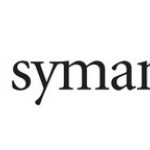- Sektör: Computer
- Number of terms: 2033
- Number of blossaries: 0
- Company Profile:
Symantec Corporation is an computer security software corporation headquartered in Mountain View, California, United States. It is a Fortune 500 company and a member of the S&P 500 stock market index.
This acronym means Raptor Console for UNIX. RCU is essentially an updated version of the Hawk GUI that was used to manage prior versions of the Raptor Firewall. RCU can be installed on the Raptor Firewall on a UNIX system, as well as on a standalone Solaris workstation, and can be used to manage both NT and UNIX versions of the Raptor Firewall 6.0.
Industry:Network hardware
This refers to the DNS servers that have been registered at the InterNIC as the authorities for an Internet (DNS) domain. These name servers maintain the definitive information about a domain, such as where to send mail to users in the domain, where the domain's web server is, etc. All other name servers can only provide non-authoritative answers (that is, answers from their cache). If you do not know which servers are the registered authorities for your Internet domain, you can either ask your ISP, or refer to our online procedure to find out for yourself.
Industry:Network hardware
Reserved addresses are a bank of IP addresses set aside for Intranet use. They are not registered to any network, and hence, are not routable across the Internet. RFC 1597 and its replacement, RFC 1918, are the documents that specify the range of reserved addresses. At this writing, these ranges are 10.0.0.0 to 10.255.255.255, 172.16.0.0 to 173.31.255.255, and 192.168.0.0 to 192.168.255.255.
Industry:Network hardware
Refers to the client software that is used to talk to a DNS server, such as DNSd, and hence, translate Internet names into IP addresses. Since resolvers do not know the location or IP address of any DNS servers, let alone which servers they should talk to, the resolver's configuration parameters are critically important. An incorrectly configured resolver can prevent clients from getting Internet name resolution, and hence, from accomplishing any Internet-related work. The resolver on the Raptor Firewall, like all Windows NT 4.0 systems, is set in the DNS Search Order field found in Start> Settings> Networks> Protocols> Tcpip properties> DNS tab.
Industry:Network hardware
This acronym means Raptor Management Console. RMC is a new product on Raptor Firewall 6.0. It replaces Hawk, which was the firewall's GUI on prior Raptor Firewall versions, and is built on the Microsoft Management Console. RMC can be installed on the Raptor Firewall on Windows NT systems, as well as on standalone Windows NT workstations, and can be used to manage both NT and UNIX versions of the Raptor Firewall 6.0.
Industry:Network hardware
Refers to the name servers of the root domains .com, .edu, .gov, and .org. These name servers specialize in providing referrals to the registered authorities within their domains.
Industry:Network hardware
A logical delivery path between two IP networks or hosts. When a specific path for a particular network or host does not exist, packets being sent to that host or network are delivered using the sender's default route, which is also known as the default gateway. The routing table is used to hold all the routes (that is, delivery paths) known by a host and can be displayed from the Command Prompt window using the "route print" command. Static routes to particular hosts or networks can be set in the registry using the "route add -p" command. Full command syntax for the route command can be displayed using "route -help".
Industry:Network hardware
Refers to an authoritative DNS server that receives domain/zone information (that is, the DNS resource records it is responsible for) by requesting this information from the primary server for the domain in a process known as a zone transfer. The main reason secondary servers were invented was to lower administrative burden. In other words, the administrator only has to maintain the primary server, after which the zone transfer mechanism ensures that the secondary servers are automatically updated.
Industry:Network hardware
The IPSEC mechanism by which the management of authentication and encryption algorithms and their keys are decoupled from the suite of IPSEC protocols. A bidirectional communications session (A<->B) will normally have one Security Association (SA) for each direction - one for A->B traffic, and another for B->A traffic. The SPI, a 32-bit number contained in the packet, identifies the SA, and, hence, the algorithms and keys to be used in the processing of the packet.
Industry:Network hardware
The opposite of client-side transparency (see "transparent"). A transparent connection (TCP) or data stream (UDP) in which the firewall is transparent to the client. In other words, the client addresses the server directly, rather than indirectly through the firewall. Another way of putting it is that the true server, and not the gateway, is the target of the traffic. Typically used for outbound access. Outbound server-side transparency requires that the client's default route or gateway points to the IP address of the firewall's inside interface (or to a router whose default route gets there).
Industry:Network hardware
